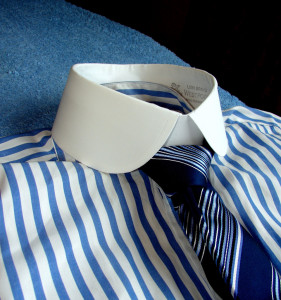What Is Starch?
Scientifically speaking, starch is a carbohydrate made by plants to store energy. It’s found frequently in fruits, vegetables, and tubers (like potatoes). Starch has been used for centuries on clothing to stiffen it and improve the look by reducing limpness and maintaining creases, and it’s certainly come a long way over the years. Here’s all you need to know about this simple, yet common, dry cleaning tool:
Uses of Starch on Clothes
Starch has been used on clothing since European medieval times. The original process was a bit lengthy, and involved boiling starchy material, such as bran, in water, and then soaking clothing before drying it out and polishing with a ‘slickstone’ (a smoothing tool, generally made of rock or glass). It’s no surprise, then, that starching was once considered a bit of a luxury. Modern times have brought many advances in the manufacture of laundry starch, which is now usually made from corn, wheat, potato, or tapioca, and it’s commonplace amongst dry cleaners and other laundry services. Some starches can be added to the washer, while dry cleaners will use them while pressing clothing items.
Advantages of Starching Dress Shirts
Starch is very commonly used on dress shirts, and with good reason. A starched shirt retains its shape and creases significantly better while worn, improving the overall appearance and sharpness of the look. A lesser-known, yet substantial benefit of starching is that dust, grime, and sweat will adhere to the starch rather than to the cloth, making it easier to clean the shirt later. That’s right – regular starching can actually cut down the frequency with which a professional clean is needed and reduce the likelihood of staining, saving you time and money.
Types of Starching
Most dry cleaners will offer multiple degrees of starching – light, medium, and heavy. The intensity you opt for largely comes down to your personal preferences. A light starching may be appropriate for a less-stiff look, while a medium or heavy starching will help the item retain its shape much longer. Not sure what you want? You can always discuss your options with the dry cleaner and ask their advice.
What Types of Clothes Can Be Starched?
Generally speaking, only natural fabrics are receptive to starch, at least in the organic sense. This means that cotton (and cotton/polyester blends) and woolen clothes can be starched, while synthetic fibers don’t hold it well, as synthetics tend to be slicker and cannot absorb the starch the way natural fibers can. That said, specialty synthetic starches are available for those who require them.
Interested in starching or other dry cleaning services? Contact Classic Touch Cleaners today.